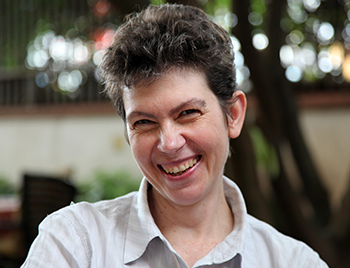Latest News Archive
Please select Category, Year, and then Month to display items
08 April 2021
|
Story Thabo Kessah
|
Photo UFS Photo Archive
 Dr KPD Maphalla with former UFS Chancellor, Dr Franklin Sonn, during the graduations in April 2007.
Dr KPD Maphalla with former UFS Chancellor, Dr Franklin Sonn, during the graduations in April 2007.
The University of the Free State is sad to learn of the passing of alumnus and award-winning Sesotho literary giant, Dr KPD Maphalla.
The literary works of Dr Khotso Pieter David Maphalla, like many other African writers and artists, were influenced and characterised by his own era of powerful forms of oppression and exclusion from dominant literary discourses. In his own right and through his writings of poetry, novels, short stories, and kodiamalla (dirge), he articulated a deliberate political and social protest and pushed for a place for African languages in literature at the height of apartheid.
“He entered the professional scene with his ground-breaking novel, Kabelwamanong, in 1982 at the age of 27. His career actually started in 1971 while he was still at school. Since his first novel, he has produced at least two books annually, covering the genres of poetry, novels, dramas, and short stories. As a dramatist, Dr Maphalla has written a number of excellent and educative radio dramas for the then Radio Sesotho (now Lesedi FM),” said his long-time friend and Head: African Languages at the University of the Free State, Dr Nyefolo Malete.
“It was for this writing prowess that he received recognition from the UFS when he was awarded an Honorary Doctorate in Literature by the Department of African Languages during a momentous ceremony on the Qwaqwa Campus in 2007,” added Dr Malete.
Dr Malete also revealed that, despite losing the use of his right hand after suffering a stroke following a car accident in the late 1990s, Dr Maphalla continued writing using his left hand. “He was adamant that, what he referred to as his ‘supposed disability’, would not deter his passion for writing.”
Dr Maphalla’s work has also produced numerous scholarly studies by the likes of Profs Moleleki Moleleki (protest poetry), Thapelo Selepe (lament and protest poetry), and Dr Seema Seema (process of cross-cultural communication). He was a committed Qwaqwa community member, who was also instrumental in the founding of Qwaqwa Community Radio (2000) and Metjodi Writers (2006), among others. He has written more than 70 books, many of which have been prescribed texts in schools.
Some of the awards he has won include:
South African Centre for Digital Language Resource (SADiLar) Sesotho Lexicographic Unit (Sesiu sa Sesotho) Lifetime Award for outstanding literary works and for promoting Sesotho literature (2019).
The Literature Festival and the University of the Free State Award for enormous contribution to Sesotho literature by a South African writer (2019).
Lifetime Achiever Award in Literature awarded by the Department of Arts and Culture (2005).
M-Net Book Prize for Sesotho poetry (2005). The first and thus far the only Sesotho author to have received this honour.
M-Net Book Prize for best novel (1996).
De Jager-HAUM Literary Award for his volume of short stories, Mohlomong Hosane (1993).
Thomas Mofolo Trophy for Best Novel, Best Poetry, and the Overall Award (1992).
Thomas Mofolo Trophy for Best Poetry (1991).
Dr JJ Moiloa Floating Trophy for Best Sesotho Poetry Book of the Year, Kgapa tsa ka (1985).
UN-recognised scholar awarded the prestigious TRI Annual PhD Award
2015-11-09

Dr Anneli Botha, winner of TRI Award for Best Doctoral Thesis.
Photo: Supplied
|
Two years after enrolling as a PhD candidate in the University of the Free State’s (UFS) Department of Political Studies and Governance, Dr Anneli Botha was awarded the annual Terrorism Research Initiative (TRI) Award for the 'Best Doctoral Thesis on Terrorism and Counter-Terrorism' (2014).
The TRI PhD award is a prestigious international honour, while terrorism as a scholarly venture remains a concentrated field. Dr Botha, one of the few women in this niche field, has proved to be an excellent asset. Her winning of the prestigious award was announced in its October 2015 issue of Perspectives on Terrorism (PT), a globally-circulated online journal, co-published by the European-based Terrorism Research Initiative and the America-based Center for Terrorism and Security Studies.
Based on the merit and relevance of her outstanding research, the United Nations Development Programme has appointed Dr Botha as a Consultant on Radicalisation. In addition, her PhD is to be published as a book in the United States of America early in 2016. She was appointed as a Research Associate at the University of the Free State at the beginning of this year.
An award-winning search for answers
Her thesis, titled “Radicalisation to Terrorism in Kenya and Uganda: a Political Socialisation Perspective”, tackled East African militancy, from an individualised perspective. Researchers in the past have neglected assessing details of the rebels’ childhoods. Dr Botha’s interviewed about 285 militants and their families. These individuals declared themselves openly as members of al-Shabaab and the Mombasa Republican Council (MRC) in Kenya, and the Allied Democratic Forces (ADF) and the Lord’s Resistance Army (LRA) in Uganda, at the time of the interviews.
Her doctoral dissertation provides significant information about factors that should be considered in the quest to counter and prevent terrorism. Her research shows conclusively that political socialisation begins with the family, and expands through peers, school, media, and earlier political experiences, culminating in the terrorist group.
Outstanding piece of scholarship
Dr Alex Schmid, who is the editor of PT, TRI Award Jury chairman, and one of the most respected experts of terrorism, described Dr Botha’s research as an “outstanding piece of scholarship.”
Dr Botha attributed her success to her supervisors - Professors Theo Neethling and Hussein Solomon - as well as to the people in Kenya and Uganda.